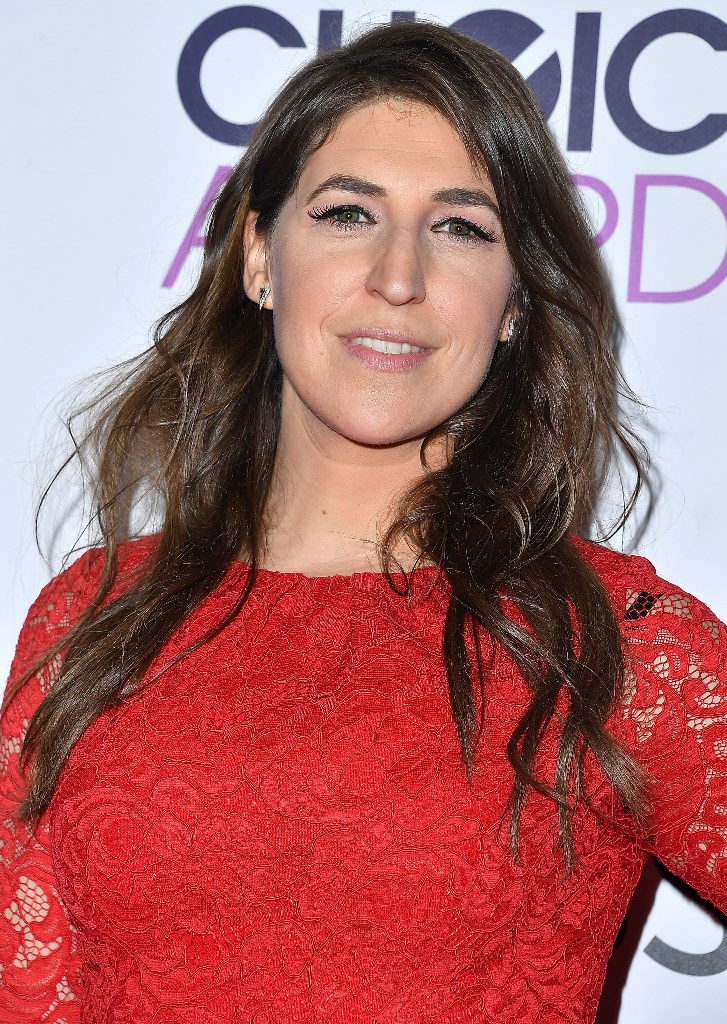I Feel Pity: Mayim Bialik’s “Feminism” Hurts



Raise your hand if Blossom broke your heart a bit this week.
For a specific subset of women who make up the Oregon Trail Generation or whatever we’re being called these days, Blossom (and Mayim Bialik) was it, in terms of sassy-but-still-basically-rule-abiding role models who’d read as many books as you had – at least until you discovered Angela Chase and the writers from Sassy. Blossom and Mayim were intentionally blended together back then, and she felt like a bold, funny older sister you were glad to have paving the way.
That’s what made her tone-deaf and self-righteous New York Times essay, “Feminist in Harvey Weinstein’s Hollywood”, so frustrating and infuriating. Until now, I had leftover fondness for her. True, I never watched a frame of Big Bang Theory, but everyone’s got to eat, and MayimBialik – who got a PhD, you guys – felt like that old friend from 9th grade, the one you didn’t talk to by the end of high school, but are still glad to hear is doing well.
When I read her op-ed this weekend, I realized she wasn’t doing well at all.
Obviously her piece (for which she has since mea-culpa-ed, sort of, in a Facebook Live yesterday) was victim-blaming, overly simplistic, and espouses a ‘feminism’ that shamed women who don’t act and dress exactly as she does.
But the most troubling part of the article is how clear it is that Bialik, 22 years after the end of Blossom, still views her entire life through a lens of ‘I am not pretty’. All those messages she talks about being sent when she was a kid? They sunk in. The words are there, in and out of the text. “As someone who’s not attractive, I…”
Put aside whether you think she is or not. That’s not the point. But Bialik internalized a message that she isn’t traditionally ‘desirable’, or Hollywood desirable, and has hung onto that so long she’s decided to make it part of her persona. “I’m not pretty, and so I am on the sidelines and able to give x y and z observations”. It’s the lens through which she has chosen to see everything. She’s decided it’s her superpower. “I’m not pretty, and so I can see all of this on a higher plane than the rest of you.”
Again, the truth of it – that attractiveness has absolutely zero to do with the power dynamic of a serial predator and abuser – is lost on her here. So too is the idea that people who choose to make themselves ‘attractive’ (which according to Bialik seems to involve everything from dieting to employing a personal trainer) are never, in any way, complicit in their own victimization. Though she later apologized for drawing this parallel in the Facebook Live, and noted that her 900-word essay wasn’t the place to examine these ideas fully, she also noted that she’s writing a book on how to raise feminist boys, so… you’ve been warned, on many levels.
But the irony that killed me, reading Bialik’s op-ed again, is that she believes everything she’s been fed all these years. Despite what her words say, she believes that her looks have put her at a disadvantage, at least in Hollywood. She believes she’s leaning into that disadvantage. That she was paid, in brains or vocabulary or something else, a surplus to make up for what she lacks (her inference, not mine) in traditional television-facial conformity. It’s a simplistic view, to say the least.
More than one person pointed out that there seemed to be a tone of envy or jealousy in the article, even when ostensibly talking about harassment and assault victims. That felt both uncomfortable and true – and that’s when I realized what was hardest about the Mayim Bialik op-ed, and why it caused so many women so much pain...
She’s internalized all the notes about her value that were given to her by – you guessed it – men. She claims to be rejecting “Hollywood beauty standards”, but instead, she’s rejecting people (by which I mean women) who fit into those beauty standards, whether by chance or by effort. She is, in a very erudite way, telling you she’s one of the cool girls, who doesn’t get along with all those lame ‘other’ girls, and then calling it ‘feminism’ in the process. And that’s when it dawns on you exactly why this feels so sad:
Mayim Bialik has gone from being a cool older sister to the girl who never left high school. In real life when an adult woman still trumpets the same attitudes she had at 17, it feels pathetic; with a platform this big she’s closer to toxic. It’s dressed up in the New York Times, but the sentiments are still the same as ‘slut’ hurled in a high school bathroom – if you don’t make the same choices as me, then mine must be right and yours must be wrong, because I feel insecure about something you have, and I don’t.
It’s not new – in fact, it’s old fashioned. But it’s sad, partly, because for some of us, Blossom was probably the first teenager to call herself a feminist, and mean it. But then, always a little sad to look at someone who seemed smart, unusual, or trailblazing -- and realize they are dinosaurs ahead of their time.
